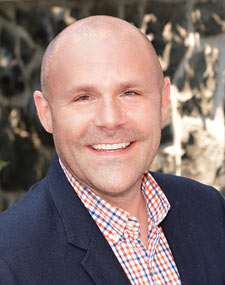Our DNP degree focuses on nursing practice and leadership in both rural and urban underserved areas, where the need is the greatest. We’re also dedicated to providing opportunities to our students in the use of telecommunications technology, which can provide access to health professionals in areas that would otherwise not have coverage.
This is a rigorous program, preparing nurses to practice at the most advanced level of nursing care. While created for working nurses, this program requires a significant number of hours dedicated to your studies as you gain the information needed to become a doctorally prepared nurse practitioner.
Flexible Format
We understand that you can’t always take a couple of years off from work to go back to school. That’s why we’ve developed a curriculum that incorporates an online/hybrid format with minimal on campus time to make our program accessible to nurses who are working professionals who may not live in the Duluth and St. Cloud, MN areas. Whenever possible, clinical experiences are arranged at appropriate sites near the student’s home.
Program Concentrations
Adult-Gerontology Acute Care Nurse Practitioner
Adult-gerontology acute care nurse practitioners are acute and chronic disease expert practitioners within the adult and geriatric subspecialty. The AGACNP handles complex patients in a variety of acute care settings, including, but not limited to hospital medicine, intensive care, emergency room and specialty care. The AGACNP is equipped to assess and treat the immediate acute health situation, order and interpret diagnostic tests, and develop treatment plans with the goal of stabilization and returning patients to an optimal level of health. Graduate preparation expands the comprehensiveness of the adult-gerontology acute care nurse practitioner’s role to include use of research in evidence-based practice, development and implementation of health policy, leadership, education, case management and consultation. Nurse practitioners, acute care or specialty physicians serve as preceptors.
Family Nurse Practitioner
The FNP concentration prepares nurses to be leaders who manage the primary health care needs of families from infancy through adulthood. A family-centered approach to health promotion, disease prevention and intervention in illness responses of individuals is emphasized. Graduate preparation expands the comprehensiveness of the family nurse practitioner’s role to include use of research in evidence-based practice, development and implementation of health policy, leadership, education, case management and consultation. Nurse practitioners and primary care or specialty physicians serve as preceptors.
Psychiatric and Mental Health Nurse Practitioner
The PMHNP concentration prepares advanced practice nurses who are qualified to address the lifespan psychiatric-mental health needs of persons with serious mental illnesses, substance abuse problems, and/or common medical conditions related to psychiatric and/or substance abuse problems. Community mental health promotion as well as disease prevention and intervention are emphasized. Graduate preparation expands the comprehensiveness of the psychiatric-mental health nurse practitioner’s role to include use of research in evidence-based practice, development and implementation of health policy, leadership, education, case management and consultation. Nurse practitioners, clinical nurse specialists, psychiatrists, and other licensed, advanced practice mental health professionals serve as preceptors.

 Chad Oppelt
Chad Oppelt



